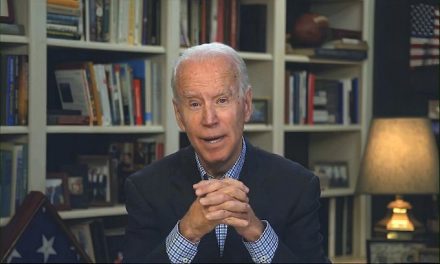“The greetings most of us rely on so much — and frankly, that COVID is getting in the way of — are those greetings that, with one gesture, answer ‘Who am I to you?’ in terms of dominance and intimacy,” she said.
At the same time, these greetings stimulate pressure receptors that calm the nervous system, decrease stress hormones, and save immune cells, said Tiffany Field, founder and director of the Touch Research Institute at the University of Miami School of Medicine.
“It’s ironic that we’re here in a viral pandemic and one of the things that works at killing our viral cells is moving the skin,” she said.
A survey Field conducted in April found 60% of people are feeling touch-deprived as a result of the pandemic.
Given that the United States is a “pretty low-contact culture,” greetings are one of the only ways we get physical contact outside our romantic partnerships, said Katie Dunleavy, associate professor of communications at La Salle University.
“Physical touch is really, really important, but we don’t get it enough,” she said.
With all of us in quarantine, I believe that we are all clamoring for human connection. That said, I’ve decided to make a video of just some of the hugs and hig5s I’ve been fortunate enough to be a part of around the world. Follow me on Instagram@thehumanhigh5 and see hugs and high5 from my hug-travels through 50 states and 42 countries since 9/11.
A post shared by David Hale Sylvester (@thehumanhigh5) on Apr 10, 2020 at 7:41am PDT
Even before the coronavirus, our society was becoming more vigilant about not touching, Dunleavy said, amid increasing concerns raised by the Me Too movement and child advocates.
“I think it’s like a lot of things with the coronavirus. It’s like, ‘Wait, this is changing, but is it necessary to go back?’” she said.
Alternative nonverbal gestures from bowing to the peace sign have been proposed, but nothing’s stuck yet. Field said she likes the elbow and ankle bumps, which allow for increased eye contact, which she believes is “critical when greeting people.”
David Matsumoto, a psychology professor at San Francisco State University who founded the school’s Culture and Emotion research lab as well as Humintell, a nonverbal behavior research and training company, believes our greetings are so entrenched in us they will return.
“I do believe the strength of that need based on human nature is stronger than the fear of a pandemic,” he said. “Humans will not let this overwhelm the need for connection.”
What Matsumoto does see evolving are our conventions about greetings. For instance, traditionally, if someone offers you a palm for a handshake, it’s rude to decline. That may change.
“There’s more individual respect about people who have different feelings about that,” he said.
That will mean we have to get better at other kinds of communication, Jones said.
“If you show hesitancy to shake someone’s hand, how skilled are you at knowing how to explain to that person what’s going on?” she said.
View this post on Instagram Hanging with some cool brothers from Miami at the Trevi Fountain.
A post shared by David Hale Sylvester (@thehumanhigh5) on Sep 25, 2019 at 4:37am PDT
Weinstein and Sylvester aren’t worried about those awkward moments (they’ve been asking strangers to hug them for years). They just can’t wait until they can hug again.
“I’ll figure out a way to get it done. I haven’t done this for 19 years with a half a million people because this doesn’t mean anything,” Sylvester said. “It means something and it’s important.”
___
(c)2020 The Philadelphia Inquirer
Visit The Philadelphia Inquirer at www.inquirer.com
Distributed by Tribune Content Agency, LLC.
—-
This content is published through a licensing agreement with Acquire Media using its NewsEdge technology.



















Recent Comments